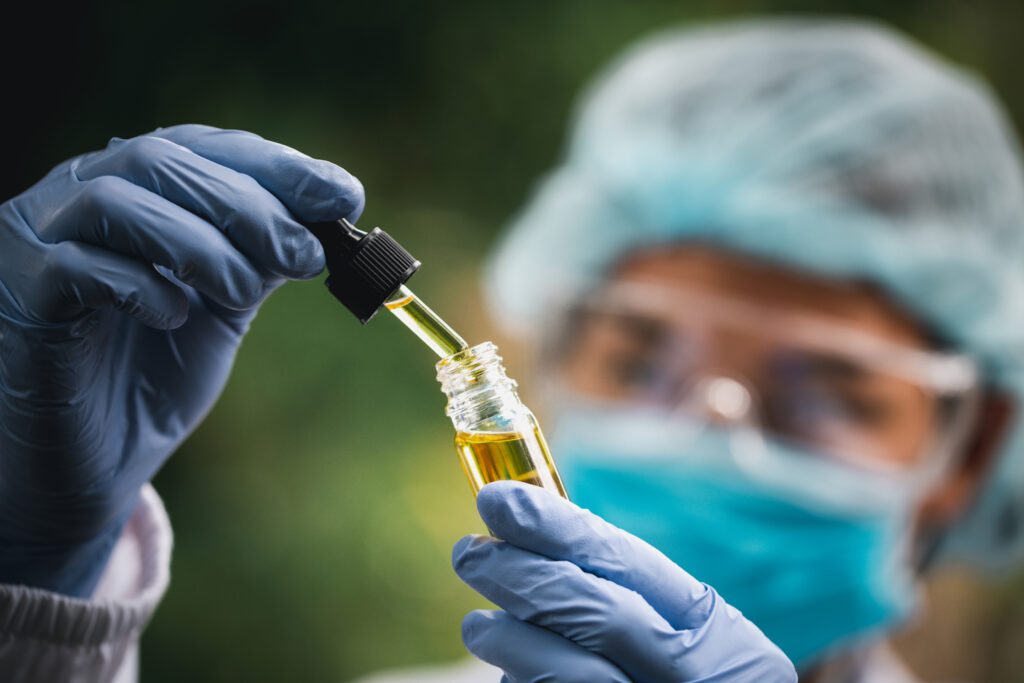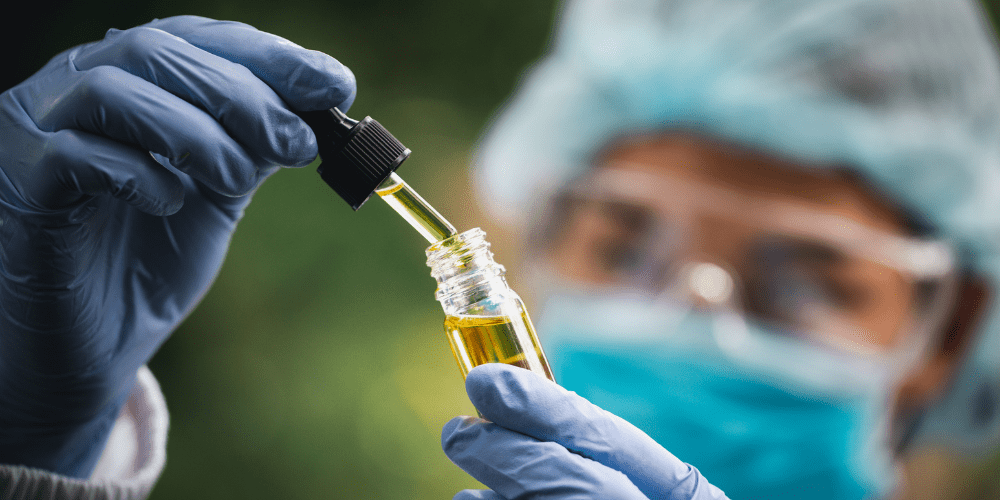
April 20, 2023
The Latest in CBD and Hemp Agricultural Technology

In 2021, the California State Assembly authorized the use of hemp-derived cannabidiol, or CBD, for consumption. Today it’s common to find CBD salves, supplements, and oils on store shelves since it’s considered an alternative to cannabis (which has been legal for medical use in the state since the late ‘90s) that doesn’t cause any impairment or urges for midnight snacking. Studies have shown that CBD has analgesic and anti-inflammatory properties, but the FDA has not given its full blessing to the manufacture and sale of CBD. In 2018, the agency approved Epidiolex to treat seizures associated with two rare forms of epilepsy, and the drug remains the only approved CBD-derived prescription. Earlier this year, the agency announced it’s pursuing a new regulatory pathway for CBD products and looking to examine the long-term effects of its use.
While researching CBD and its potential beneficial properties is still fairly new territory for the biotech industry, these Biocom California member companies, ranging from cellular biology to ag tech firms, have made advancements in the field.
Farming 2.0
Cellibre, a cellular agriculture company based in San Diego, is on a mission to develop pharmaceutical-grade cannabinoids and developed a method for sourcing CBD which doesn’t use much water—or any standard farming practices, for that matter. Through fermentation in a lab, the company takes extracted CBD cells and mixes them with yeast and essentially “brews” CBD without having to tend to any plants or maintain greenhouses. This method, the company says, allows it to produce more CBD in a more sustainable way. In Cellibre’s upcoming product pipeline are salves for inflammation, pain and skin issues, including Cannabigerol, which is in the pilot phase of production.
Protecting Plants
Blooming flowers and fruit and vegetables ripening on the vine are all welcome signs of spring, but anyone with a green thumb knows this change of the seasons attracts a host of bugs and small animals that could wreak havoc on any garden. For companies that grow cannabis plants on an industrial scale, they have another challenge to contend with on top of eradicating any pests: the hop latent viroid. It’s a plant-specific molecular disease that spreads quickly in a nursery and can easily destroy a significant portion of a harvest. Purple City Labs, a Bay Area-based company that specializes in plant molecular biology, developed a molecular assay for testing and identifying the hop latent viroid, called OnSight. The company says its OnSight platform allows a facility to test hundreds of samples for the virus with same-day results, versus using RT-PCR testing from an outside lab. The company created the in-house test as a pilot program for Purple City Genetics in Oakland, a cannabis breeding company, and says over a dozen nurseries, cultivars and labs in the U.S. and Canada are now using the platform. “We designed OnSight to accommodate high-throughput, rapid testing at an affordable cost. We firmly believe that this approach is the only way for an operation with intensive production such as PCG to tackle and overcome this problem,” Ali Bektaş, co-founder and CEO of Purple City Labs, said in a release.
Setting Up Shop
CV Sciences Inc. is a San Diego-based company researching novel therapeutics that make use of CBD, but its consumer-facing brand, PlusCBD, maybe more well known. The retail line encompasses oils, tinctures, softgels, and topicals, and the company says it was the first hemp CBD supplement brand to invest in the scientific evidence necessary to receive the self-affirmed Generally Recognized as Safe (GRAS) status. Their CBD is derived from hemp and formulated in cGMP-certified facilities, and the company says it has sold more than 10 million bottles of its products.